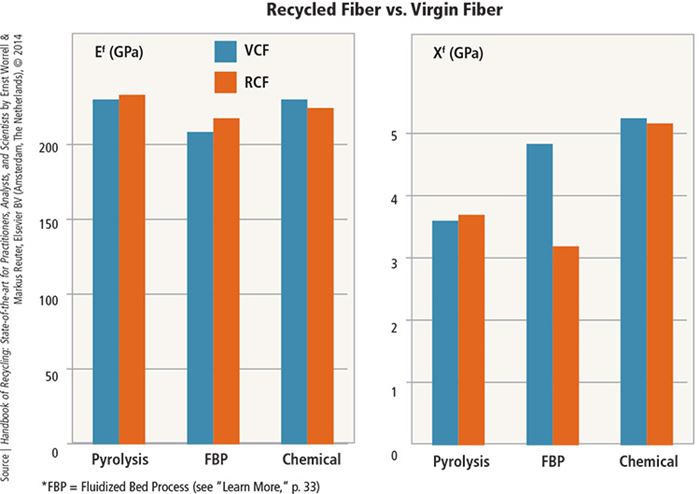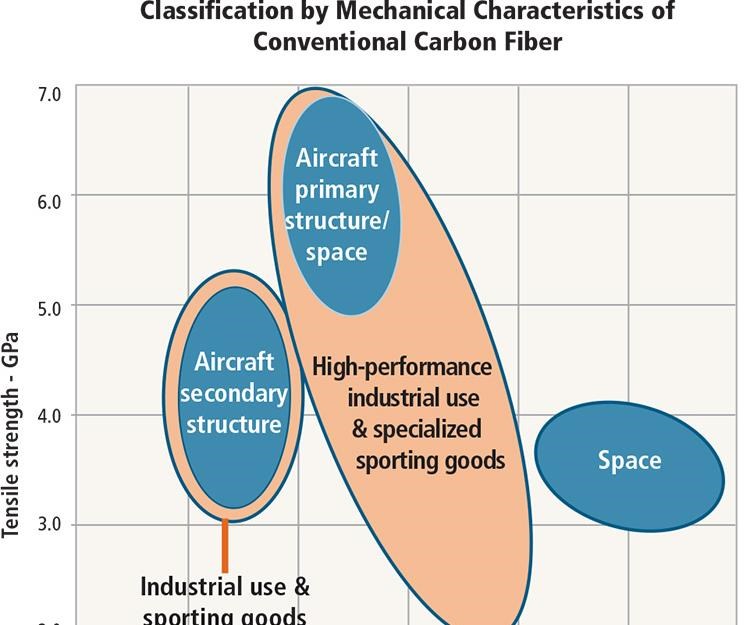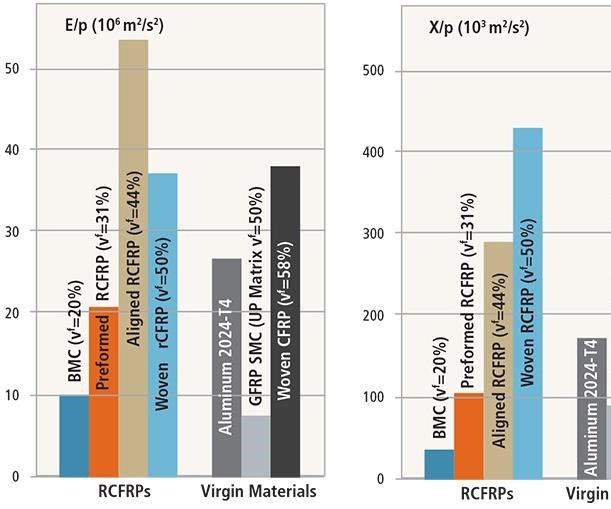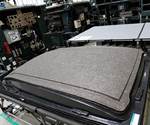Recycled carbon fiber: Comparing cost and properties
Alex Edge, sales and business development manager for recycler ELG Carbon Fibre (Coseley, U.K.), says his company’s recycled carbon fiber (RCF) products can offer from 30 to 40 percent cost savings vs. virgin carbon fiber (VCF). Tim Rademacker, a managing director at competitor CFK Valley Recycling (Stade, Germany) cites savings of 20 to 30 percent.
Alex Edge, sales and business development manager for recycler ELG Carbon Fibre (Coseley, U.K.), says his company’s recycled carbon fiber (RCF) products can offer from 30 to 40 percent cost savings vs. virgin carbon fiber (VCF). Tim Rademacker, a managing director at competitor CFK Valley Recycling (Stade, Germany) cites savings of 20 to 30 percent. Edge describes RCF modulus as basically the same as VCF (Rademacker notes ≥ 90 percent) but says tensile strength is 10 to 20 percent lower. “The largest factor is simply that everything is shredded to short fibers,” he explains.
Soraia Pimenta and Silvestre Pinho, researchers at Imperial College London, in the U.K., completed a thorough literature review on CFRP recycling operations, which was published by Elsevier in the journal Waste Management, 2011, pp. 378-392. This information has been updated and augmented in Elsevier’s recent Handbook of Recycling: State-of-the-art for Practitioners, Analysts, and Scientists by Ernst Worrell and Markus Reuter. Pimenta and Pinho’s review (see Fig. 6) show that pyrolysis-produced RCF can reach the carbon fiber producer-defined industrial envelope of 200 to 300 GPa for tensile modulus and minimum 3 GPa for tensile strength (see Fig. 7).
Even higher properties are possible. The University of Nottingham’s (Nottingham, U.K.) Steve Pickering used a modified papermaking process to achieve high unidirectional alignment with shorter-length RCF and improved permeability mats down to 10 gsm. The resulting laminates showed the highest property recycled carbon fiber-reinforced plastics (RCFRP) reported as of 2010, surpassing aluminum and even woven virgin CFRP in specific tensile modulus (see Fig. 8). Compression-molded epoxy composites using these aligned mats achieved a 44 percent fiber volume, 80 GPa tensile modulus and 422 MPa tensile strength. These results confirm the importance of efforts to characterize RCF products and their corresponding performance in composite laminates.
Editor's note: This short article is a sidebar to a feature article titled "Recycled Carbon fiber update: Closing the CFRP Lifecycle Loop." To read the main article, click on its title under "Editor's Picks," at top right.
Related Content
-
Bio-based acrylonitrile for carbon fiber manufacture
The quest for a sustainable source of acrylonitrile for carbon fiber manufacture has made the leap from the lab to the market.
-
The potential for thermoplastic composite nacelles
Collins Aerospace draws on global team, decades of experience to demonstrate large, curved AFP and welded structures for the next generation of aircraft.
-
TU Munich develops cuboidal conformable tanks using carbon fiber composites for increased hydrogen storage
Flat tank enabling standard platform for BEV and FCEV uses thermoplastic and thermoset composites, overwrapped skeleton design in pursuit of 25% more H2 storage.















